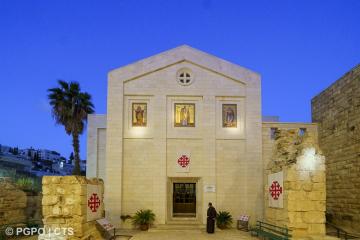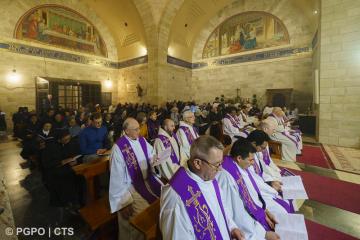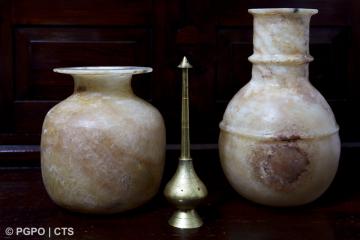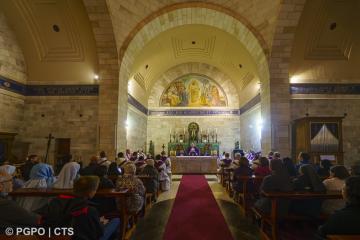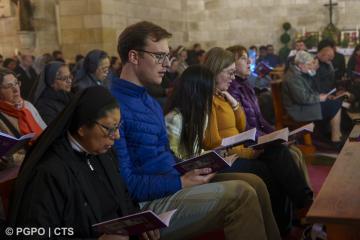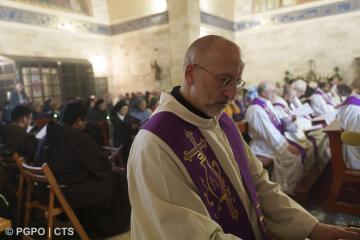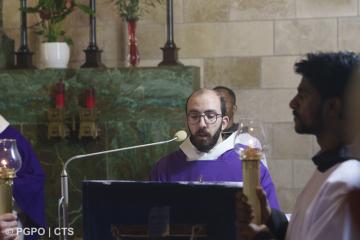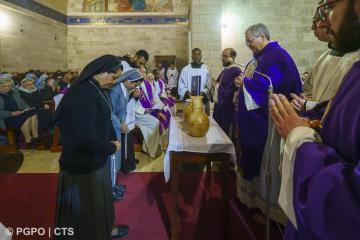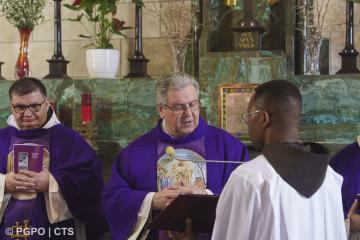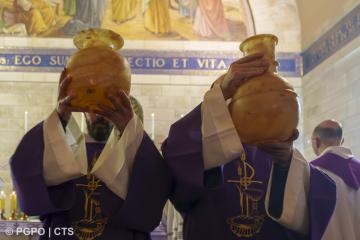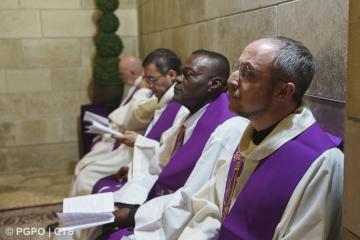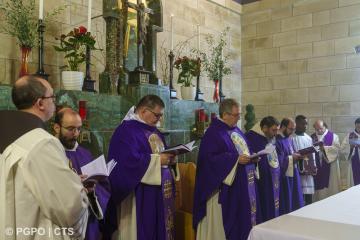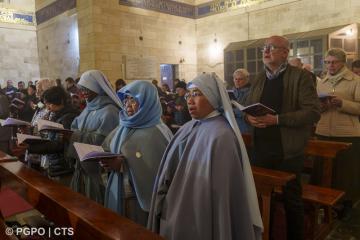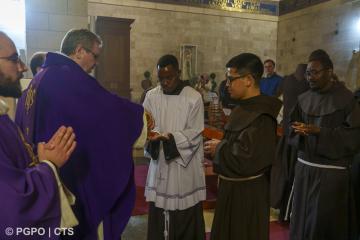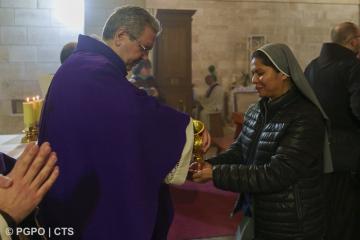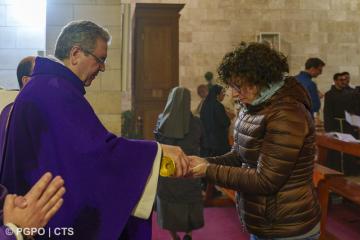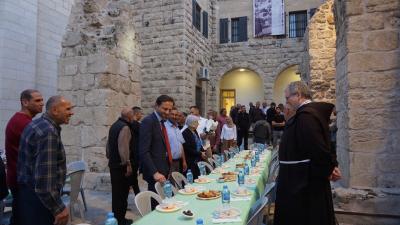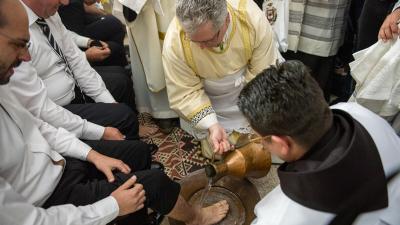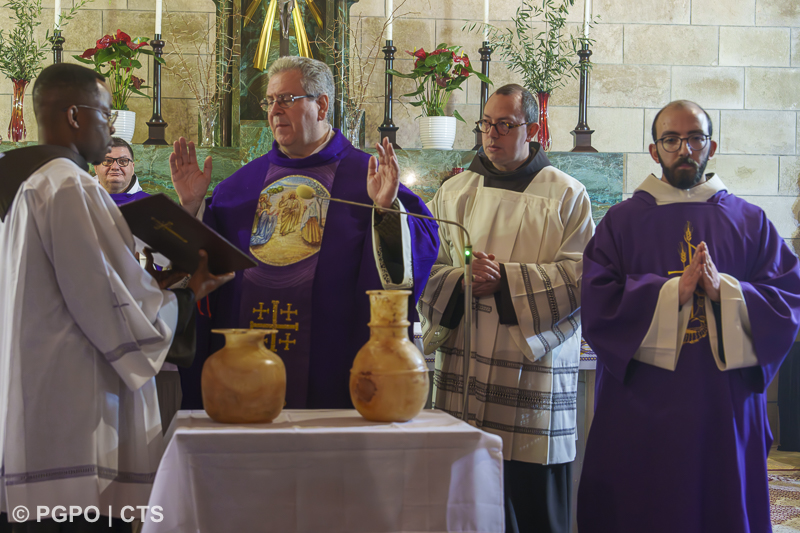
“Six days before Passover, Jesus came to Bethany” (John 12,1). The Franciscan friars of the Custody of the Holy Land made their traditional pilgrimage to Bethany on Holy Monday, six days before Easter.
The perfumed oils and Good Friday
The Custos of the Holy Land, fra Francesco Patton, presided over the Solemn Mass which included the blessing of the perfumed oils which will be used on Good Friday, during the traditional funeral procession in the parishes of Jerusalem and to the Holy Sepulchre, evoking the deposition and burial in the Tomb of the Lord.
Perfumed unguents and holy oils
The blessing of the perfumed unguents (aromas and spikenard) in Bethany commemorates three episodes from the Gospels: the moment when Mary, in Bethany, anoints the feet of Jesus, still alive, with “very precious” oil of spikenard; the honour that Joseph of Arimathea and Nicodemus render to the lifeless body of Jesus, when he is anointed for burial and the morning of Easter, when three women take oils and aromas to the tomb (now empty). The use of these oils is effectively limited to the funeral procession of Good Friday, but can be extended to some sacraments.
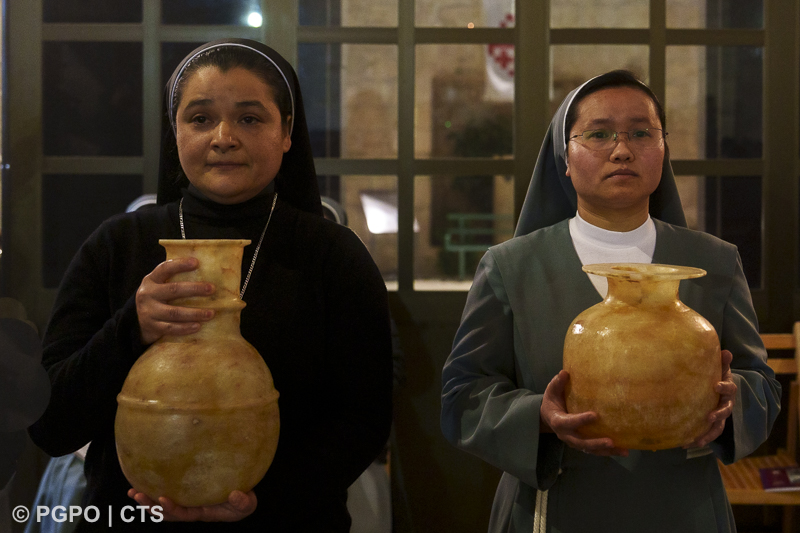
The blessing of the oils on Holy Thursday is very different. In this case, they are the three different oils used to administer the sacraments: the oil of the catechumens for Baptism, the Chrism for Confirmation and the oil of the sick for the Unction of the Sick. Precisely for this reason, it is only the bishop who, having full authority, can bless and consecrate these oils, which takes place during the Chrism Mass on Holy Thursday all over the world.
Perfume of life
Fr. Francesco Patton, in his homily, dwelled precisely on the perfume of the oil Mary anointed the feet of Jesus with in Bethany, which was so strong “that the house was filled with the fragrance of the oil” (John 12,3): “The perfume with which Mary anoints the feet of Jesus is a prophesy of the fact that life and love are stronger than death. It is a prophesy of resurrection,” of the day on which “we will no longer smell the bad odour of hatred, vendetta, enmity and death but only the perfume of the resurrection, of life in God accomplished in the life in God.”
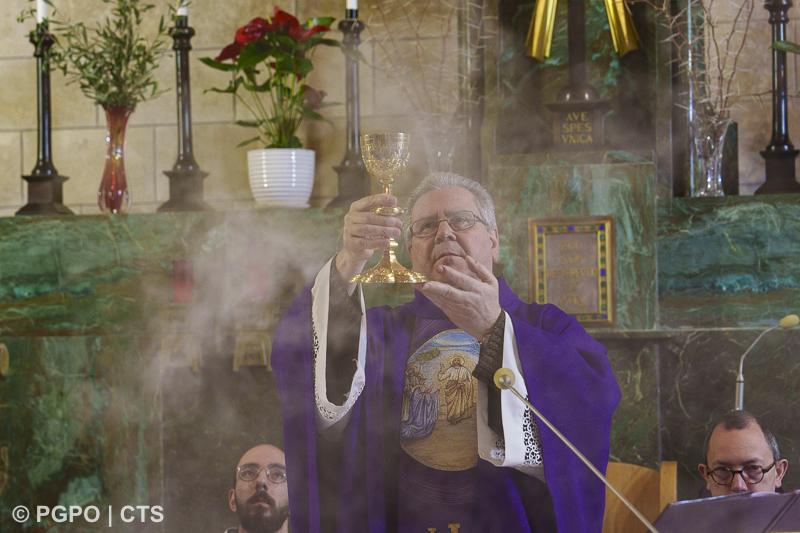
The Custos referred to the time we are living in when “unfortunately, the odour of death, of hatred and resentment is so strong that it intoxicates not only our lungs but even our hearts and souls. Everything that has to do with death gives off a bad smell, even those who hate. Weapons give off bad smells, even violent and resentful words give off a bad smell.” He concluded with a prayer: “Today we ask for our nostrils to be impregnated with perfume, the perfume of life, the perfume of friendship and of gratuitous love, of the perfume that is a prophesy not only of the resurrection of Jesus but also of our own.”
Blessed oils
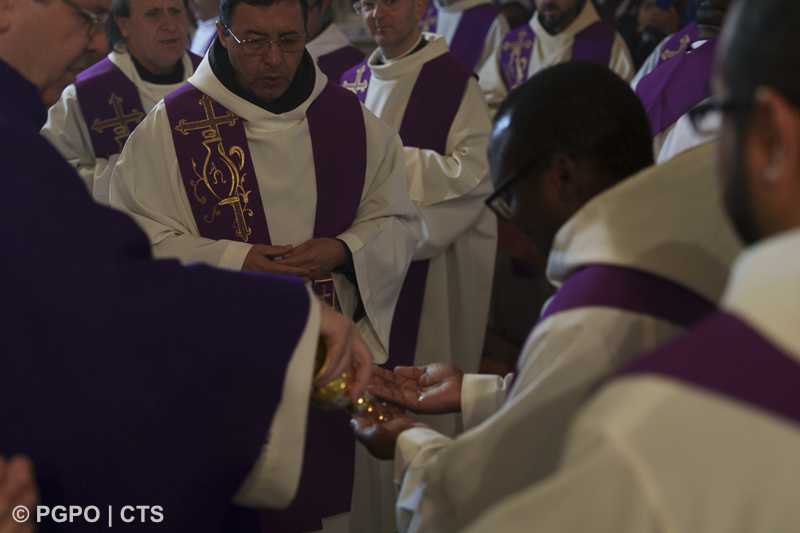
After the homily, the oils, in two alabaster amphorae, were blessed in front of the altar. In the “monitio” before the blessing, the “prophetic gesture” of Mary is emphasized, “a wastefulness that recognized the royalty of Jesus, the honour and the respect due to the King of the Universe. The perfume is the aroma of gratitude, it symbolizes the triumph of love.” At the end of the Mass, the Custos anointed the hands of those present with a few drops of the oil that had just been blessed.
Marinella Bandini


